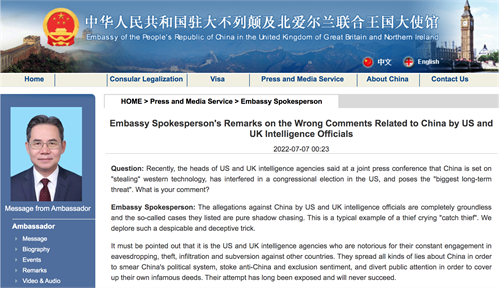
Illustration: Chen Xia/Global Times
As the revised draft of China's Counterespionage Law has been submitted to the country's top legislature for deliberation this week, Japanese media outlet Nikkei claimed on Tuesday that "China's planned changes to espionage law alarm foreign businesses." Citing the recent espionage case of a Japanese employee of drugmaker Astellas Phama, the report hyped that China's new amendment to the law is "raising fears of a stepped-up crackdown on foreign individuals and companies."
The latest revision of China's anti-espionage law is a response to the severe situation of increasing espionage actions, especially in cyberspace. Its purpose is to further protect national security by closing loopholes in new areas like cyberspace. The Nikkei's assertion which suggests the law will undermine China's business climate is a far-fetched slander that twists the facts.
Take the Astellas employee case. China's Foreign Ministry has confirmed the detained Japanese man is suspected of engaging in espionage activities and violating China's Criminal Law and the Counterespionage Law. As a spokesperson of China's Foreign Ministry noted on April 7, "all companies and individuals need to abide by host country laws. As long as one operates within the law, there is nothing to worry about."
China's anti-espionage law was first passed in 2014. Yet, in the past less than 10 years, an increasing number of espionage cases against China have been found. This fully demonstrates the necessity and urgency for China to update its anti-espionage law to protect its national security. No one is in the position to criticize China's legitimate actions, and no one has the right to use this to throw mud at China's business environment.
It should be pointed out that the latest revision to the anti-espionage law is characterized by clarity and precisely targeted, with clear purpose to protect national security as well as the interests of foreign companies and individuals. The latest revision "improves the regulations on cyber espionage" and "clearly defines cyberattacks, intrusions, interference, control and destruction" by foreign spies as espionage activities, said Zang Tiewei, spokesman of the Commission of Legislative Affairs of the National People's Congress (NPC) Standing Committee.
It is not only to fill in loopholes for espionage activities in new areas such as the network environment, but, on the other side, also to further specify what behaviors are normal and will be protected by the law. The further clarification of the law just means that the business environment is improving, not the opposite.
As China continues to expand opening-up and reform, the improvement of China's business environment is plain for all to see.
Recently, CEOs from Western countries have visited China intensively and met with high-level Chinese officials. China has repeatedly stated that foreign companies are welcome to continue to expand investment and operation in the Chinese market.
Since China's full implementation of the Foreign Investment Law in 2020, China's business environment has been further optimized. Representatives of foreign companies and people from the international business community said that the Chinese market contains broad business opportunities.
Foreign direct investment into the Chinese mainland in actual use expanded 4.9 percent year on year to 408.45 billion yuan (about $59 billion) in the January-March period, according to the Ministry of Commerce, demonstrating the nation's high-level opening-up and attractiveness to foreign investment. In July 2022, the Japanese Chamber of Commerce and Industry in China released the White Paper on the Chinese Economy and Japanese Companies in 2022. According to the white paper, 72.2 percent of the Japanese companies in China were profitable in 2021, the highest proportion since 2007.
These figures can more truly and objectively reflect the actual situation of China's business environment.
China's business environment is continuously improving. The Chinese market is becoming fairer and more transparent. China will also protect the normal operation of foreign businessmen in China in accordance with the law.
If foreign capital buys the so-called distorted facts that China's anti-espionage law will undermine the business environment, they will only miss opportunities and hand over development opportunities to competitors.
The author is a reporter with the Global Times. bizopinion@globaltimes.com.cn



